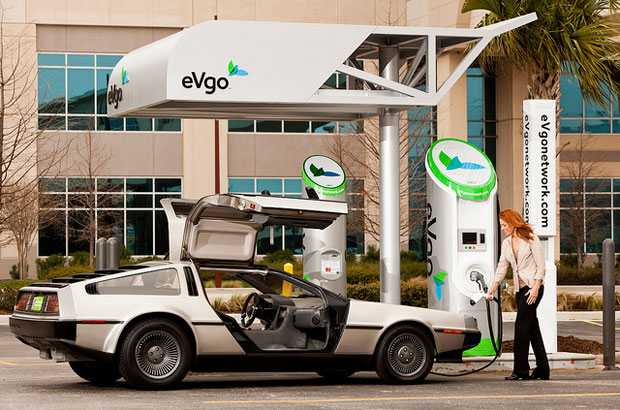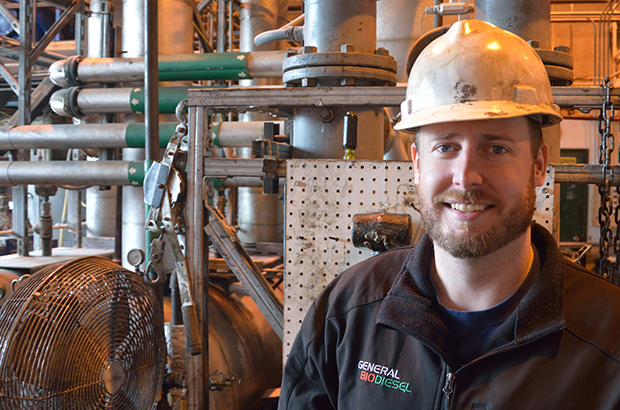Broad show of support for clean fuels for WA
Testimony focused on increased job and economic growth opportunities, climate and public health benefits.


• Why WA needs Clean Fuels Now (pdf)
• Clean Fuels for Washington FAQ (pdf)
Transportation fuels are responsible for nearly half of our climate and harmful air pollution in the Pacific Northwest: 46% of Washington’s greenhouse gas emissions and 36% of Oregon’s. West coast jurisdictions California, Oregon and British Columbia already have Clean Fuel Standard policies to curb and reduce that pollution. Clean Fuels Standards have proved to be an effective means of reducing carbon and air pollution from the transportation sector. They allow consumers to choose cleaner fuels that support local economic development in rural communities and improve public health. Clean Fuel Standards work by requiring oil refineries and importers to reduce the carbon intensity of their fuels, providing more low-carbon fuels and electricity to fuel our transportation system.
In Washington State, consumers spend $8 billion a year on gasoline and diesel. As consumers we now have little choice but to buy and use polluting gasoline and diesel fuel because the oil companies have long maintained a monopoly on our fuel options. By transitioning to clean fuels, we can keep more of this money in state and end our sole reliance on fossil fuels to power our vehicles and transportation systems. Fueling up with electricity costs consumers about a third as much as gasoline, and there are over 2,000 people working in the electric vehicle industry already in Washington. Dependence on a global fuel market is already costly for Washington residents, with volatile fuel prices and rising health care costs.
Health professionals link air pollution directly to asthma, lung cancer, and other respiratory diseases. Cleaning up pollution will protect public health and save us on healthcare costs. A recent study found that California’s Clean Fuel Standard could save $8.3 billion in avoided public health costs by 2025 because of fewer asthma attacks and hospitalizations, lower rates of lung cancer and heart attacks, and thousands of fewer lost workdays. A similar policy in Washington could lead to the same public health benefits by cleaning up our air. Leading public health organizations like the American Lung Association and Puget Sound Clean Air Agency view a Clean Fuel Standard as one of the most important ways to improve public health and transition our transportation to cleaner sources.
Electric cars and other light-duty vehicles are already an important climate solution when charged by a renewable energy-powered grid. Marine vessels, long-haul trucks, and airplanes will likely need to rely on lower carbon liquid fuels for the foreseeable future to reduce their carbon emissions. Just as we are expanding our ability to produce clean electricity, we can source our biofuels from sustainable feedstocks, including used cooking oil, dairy manure, and other waste streams that would otherwise only increase our emissions. A Clean Fuel Standard helps make sure that all of our transportation sector’s energy sources are developed and delivered in harmony with climate and environmental needs. To transport people and goods more efficiently, and over fewer miles, will require a variety of approaches including building and expanding transit systems, as well as safe infrastructure for active modes of transportation, such as walking, cycling, and scootering.

By: Bridget Mohan Flanagan on
Seattle is at the leading edge of a great and challenging shift, decoupling transportation from fossil fuel consumption. Electric vehicles will continue to displace gas-powered cars as long as prices drop and charging infrastructure expands to meet the demand. NRG EVgo is part of the push to get 3.3 million EVs on the road by 2025.

By: Ben Serrurier on
Washington prides itself on our dense forests, clean water, and sweet air. But dirty petroleum fuels are fouling our future; our asthma rate is higher than the national average. Speeding the development of clean fuels offers a healthy way forward for our environment, our economy, and our kids' health.

By: Marlyn Twitchell on
When you think of low carbon vehicles, are you more likely to envision a sporty Tesla than a delivery truck? If so, it may surprise you to know that the big rigs on the road—government and commercial fleets of trucks, buses, and even tractor trailers—are leading the charge toward clean, low carbon transportation.

By: Ross Macfarlane on
New developments in advanced biofuels—and a proposed clean fuels standard—hold great promise for helping cut back our dependence on dirty oil.

By: Ben Serrurier on
California is saving lives and boosting its economy by capping carbon emissions and supporting clean fuels. Can't we do the same for Washington?

By: Bobby Hayden on
A former Texas oilman and a public health advocate stand up to Big Oil, and fight for clean air and homegrown jobs in the Northwest.

By: Clark Gilman on
A new generation of "biorefinery" projects is turning garbage into fuel, and diverting municipal waste from landfills.

By: Clark Gilman on
We are seeing the first commercial-scale cellulosic ethanol plants commissioned in the United States and green diesel is emerging as a key biofuel, potentially a game-changer for sustainable advanced fuels.

By: E. Kirsten Peters on
We can learn from termites--producing biofuels from innovative biorefineries that can break down crop residues and woody materials, doing so economically and in a way that doesn’t harm the environment.
Join our email list to learn about what we do and how to get involved.
Testimony focused on increased job and economic growth opportunities, climate and public health benefits.
On the anniversary of the historic Paris climate accord, the world met again in Katowice. Now the Washington legislature prepares for what could be a historic session for climate action.
9th Circuit upholds lower court ruling, dismissing oil industry challenge to Oregon's low carbon fuel standard
Milwaukie, OR has joined with Portland and Multnomah County, calling for transit agency TriMet to kick diesel and rapidly electrify their bus fleet! These local governments are ordering up clean air and climate stability, by paving the way to a 100% clean energy future.
Utilities obstructed the passage of HB 2995, a measure backed by a coalition of labor, environmental, clean energy and conservation organizations that would have led Washington State to a fossil fuel-free future.
Oregon is prepared to stand up to the fossil fuel industry and lead on climate in the spirit of the Paris climate agreement. Our rallying cry for 2018: Clean Energy Jobs.
With half of all carbon emissions coming out of tailpipes, we're literally driving ourselves into climate chaos. But we can tackle this problem with clean electricity.
The bulk of Washington and Oregon’s carbon pollution comes from transportation. We've got (mostly) clean electricity—now let's electrify everything, including cars and trucks.
Today the Port of Seattle, Alaska Airlines and Boeing announced a joint effort to build new infrastructure needed to make Sea-Tac International Airport one of the first places in the world where planes will be able to fuel up with sustainable, low-carbon alternatives to traditional jet fuel. This agreement is an important step in a long and critical journey. Climate Solutions' new report, "Towards Sustainable Aviation Fuels," assesses the industry's efforts to make such fuels widely available. The short version: we're next in lline for takeoff.
Seattle is at the leading edge of a great and challenging shift, decoupling transportation from fossil fuel consumption. Electric vehicles will continue to displace gas-powered cars as long as prices drop and charging infrastructure expands to meet the demand. NRG EVgo is part of the push to get 3.3 million EVs on the road by 2025.